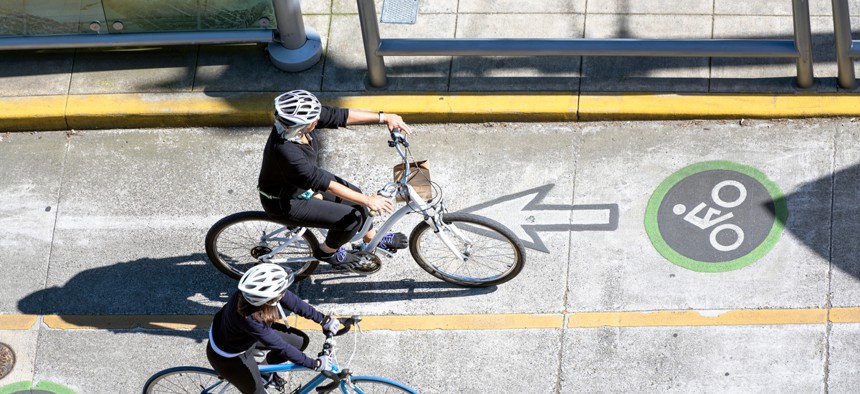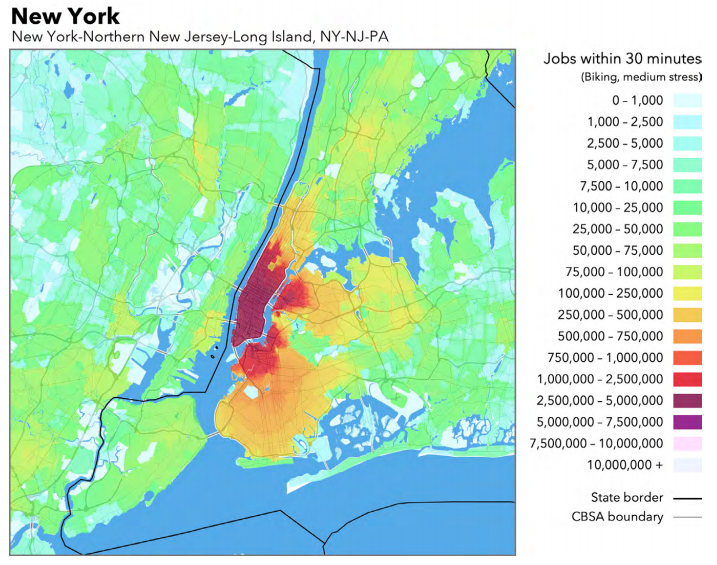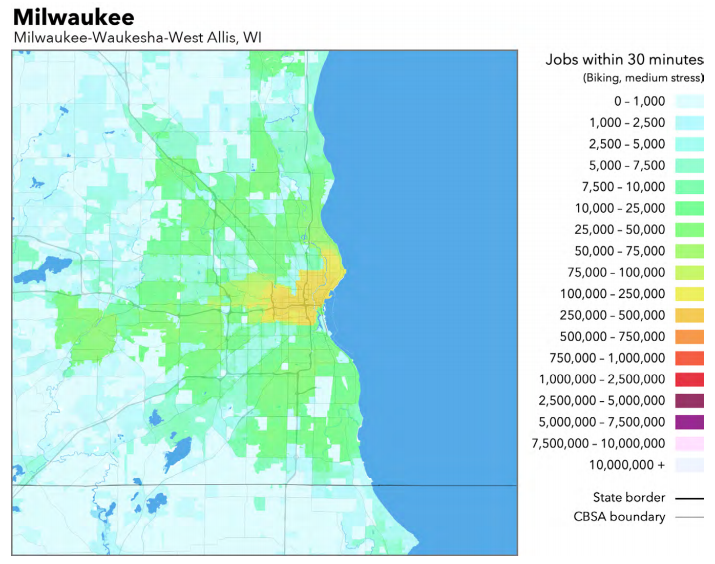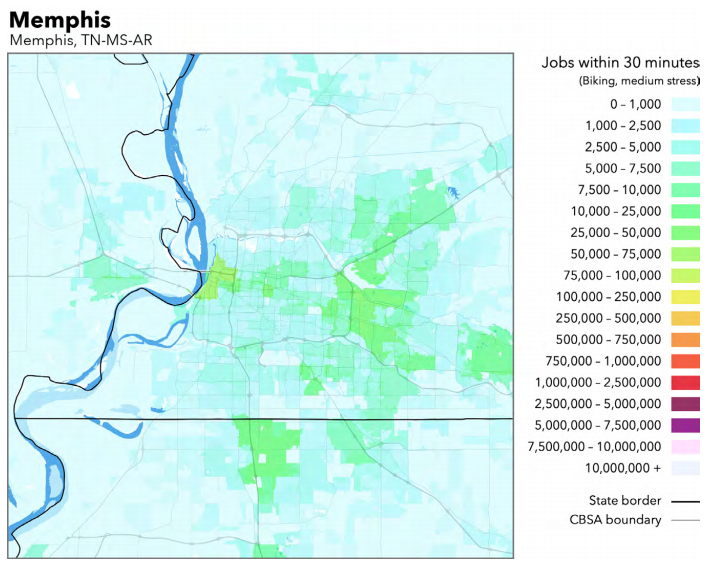Cities Invested in Bicycling Infrastructure Provide Better Access to Jobs

Protected lanes for cyclists, like this one in Portland, make getting to work on a bike a low-stress option. Vitpho/Shutterstock

Connecting state and local government leaders
A new report found that residents of cities with infrastructure for bikes have an easier time accessing jobs, especially those out of the reach of public transportation.
Biking to work is a rare choice among commuters—just 0.6% of people heading to work do so on two wheels. But that low number is the result of significant growth in recent decades, as the population of bike commuters have grown by 60% since 2000. Part of that has been driven by reports showing that riding a bike to work is a healthier option, avoids traffic jams and cuts down on commute times, as well as being cheaper than most, if not all, other options.
But the rise in biking is also thanks to changing city infrastructure, and evolving local government priorities meant to shift commuters from cars to greener options.
A new report from the Accessibility Observatory at the University of Minnesota shows just how meaningful cities’ investments in infrastructure can be. Researchers looked at the largest 50 metro areas in the U.S., and ranked them based on how traffic stress and cycling comfort affect access to job destinations. The authors argued that investing in cycling infrastructure is the best way to improve access to jobs, rather than policies favoring cars.
“Though biking is used for less than one percent of commuting trips in the United States, biking infrastructure investments are much more cost-effective at providing access to jobs than infrastructure investments to support automobiles,” said Andrew Owen, director of the Accessibility Observatory at the University of Minnesota.
The report ranked typical bike commutes on a scale of one to four, with one being the stress-free routes (those that have separate, off-street bike lanes), and four being the highest stress routes (those with no biking infrastructure at all). Those categories also loosely align with the four types of cyclists (including steadfast anti-cyclists).
The first type is people who would never cycle, no matter how safe the route; the second type encapsulates those who are interested, but unwilling to bike next to fast traffic and prefer separated lanes; the third type includes those who are enthusiastic and willing to tolerate busy traffic conditions if bike space is designated; and, finally, the fourth type is considered “fearless,” those who will bike regardless of infrastructure or traffic.
Over 80% of cyclists and potential cyclists fall into the second type, which suggests that cities should at least reach a biking infrastructure rating of two. At that low-stress level, cyclists have access to off-street paths in addition to protected bike lanes.
Using data from 2017, the top ten metro areas for job accessibility by bike were New York, San Francisco, Chicago, Denver, Washington, D.C., Portland, Oregon, Minneapolis, Seattle, Boston, and San Jose, California.
The bottom ten cities were almost entirely found in the South, including Charlotte, North Carolina, Dallas, Nashville, Raleigh, Birmingham, Virginia Beach, and Memphis.
States in the West had the highest rate of biking to work at 1.1%, while those in the South had the lowest rate at 0.3%.



The report urged local governments to use the findings while they develop new transportation priorities, and cited places like Portland (#6) as models for ideal planning.The Oregon city, which in 2011 commissioned a cost-benefit analysis of biking investments, used long-term savings as justification for increased spending on cycling infrastructure. Their analysis found that residents could save between $388 and $594 million in individual health care costs by 2040 if the city invested in more biking infrastructure. They have, and as a result, the city has the highest cycling commuting rate at 6.1%, up from 1.8% in 2000.
Owen said that he hopes state departments of transportation, metropolitan planning organizations, and local agencies can now better coordinate the construction of bike facilities in areas with high job density.
“Ultimately, our findings give policymakers and planners more options to improve transportation performance goals related to congestion, reliability and sustainability, as well as increased access to jobs,” he said.
Emma Coleman is the assistant editor for Route Fifty.

NEXT STORY: JEDI contract on hold for DOD chief's review



